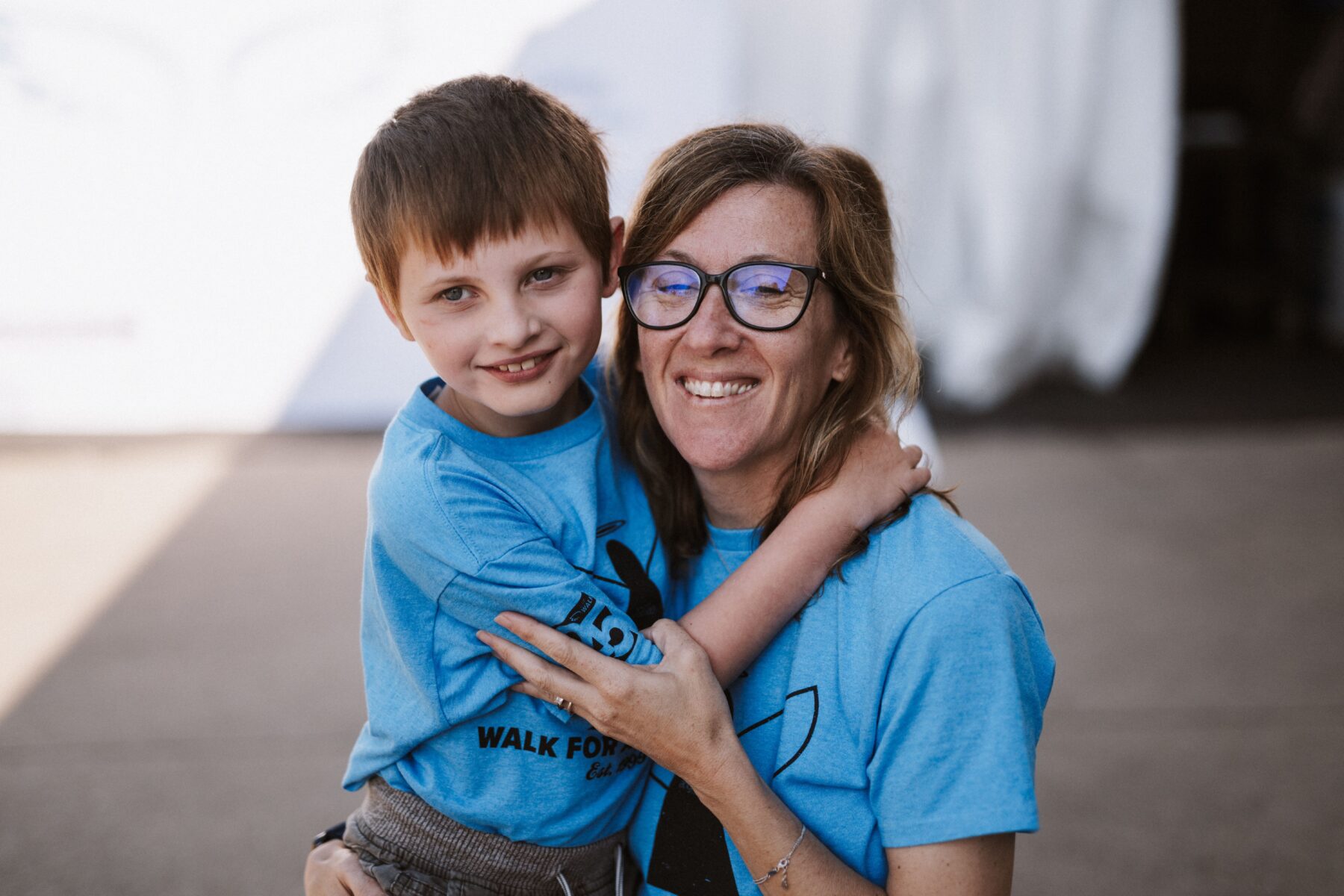-
2025 Angelman Syndrome Foundation.
All rights reserved. -
3015 E. New York Street, Suite A2 #285
Aurora, IL 60504 - (800) 432-6435
- info@angelman.org

November 8, 2025
Written by Amanda Moore, CEO and mother to Jackson
I’m writing this because I don’t know where else to put my fear, my heartache, and my passion — for my child, and for so many like him.
Some days, it feels like the only thing I can do is put these feelings into words and hope that someone, somewhere, will listen. Because silence feels dangerous. Silence means acceptance. And I can’t accept the way the world is treating our loved ones with disabilities.
Every day, I wake up and fight for my son, Jackson.
Every hour, I battle systems that were never built to see him.
And every night, I lie awake thinking about what will happen when I am gone.
Jackson is 10 years old and lives with Angelman syndrome, a rare neurogenetic disorder that affects every part of his life. He is joyful, radiant, and full of purpose. His laughter fills rooms. His presence changes people.
But behind every smile is a constant, exhausting fight, not because of who he is, but because of a world that continues to make life harder for him than it ever should be.
We are living in a moment when families like mine are breaking.
Support systems are collapsing under the weight of bureaucracy, and resources that once helped our children thrive are being cut quietly, line by line, from budgets and policies.
I read the news each day and see programs vanishing, therapists leaving, teachers stretched to the breaking point.
Then, I open my inbox to find another email from school:
A service is no longer deemed necessary.
A support will not be continued.
We are doing the best we can with what we have.
And what we have … isn’t enough.
We spend hours — every day — fighting Medicaid denials for equipment that gives Jackson dignity, independence, or a moment of peace. We fight to prove that his needs are “medically necessary,” as if his comfort and safety should be up for debate. We fill out the same forms again and again, each one a reminder that in the eyes of the system, our children are a number — not a soul.
But what haunts me most is the question that every parent of a child with a complex disability carries like a stone in their chest: What happens when I’m gone?
Who will advocate when I no longer can?
Who will understand his sounds, his gestures, his laughter, his silence?
Who will make sure he is cared for not just physically, but lovingly?
I am the CEO of a national foundation that fights every day to make the world better for individuals like Jackson. But even with all the progress we’ve made — the research, the clinics, the networks — I still feel the fear that every parent in our community feels — the fear of a society that doesn’t yet see our children as valuable, capable, or worthy of investment.
This is not just about disability policy; it’s about humanity.
We are asking — begging — for people to see the value in every individual, regardless of how they communicate, move, or think.
Our children are not burdens.
They are teachers.
They are mirrors showing us what unconditional love looks like.
They remind us what resilience truly means.
But families like mine cannot do this alone. We need people who don’t live this journey to stand beside us, not out of pity, but out of respect. We need neighbors, employers, educators, lawmakers, and communities to open their eyes and their hearts and ask:
What kind of world do we want to build? One that includes everyone, or one that leaves behind those who need us most?
If you’ve never met someone like Jackson, I challenge you to.
Spend 10 minutes in his presence and you will see what pure joy looks like. Spend an hour and you will see strength, humor, and connection beyond words. Spend a day, and you will wonder how you ever thought of “value” as something that could be measured by productivity or IQ.
This is my plea, as a mother, as a leader, as a human being:
See our children.
Value their lives.
Stand with us in the fight for dignity, care, and inclusion.
Because when the world forgets our children, it loses part of its soul. And I refuse to let that happen.
Latest